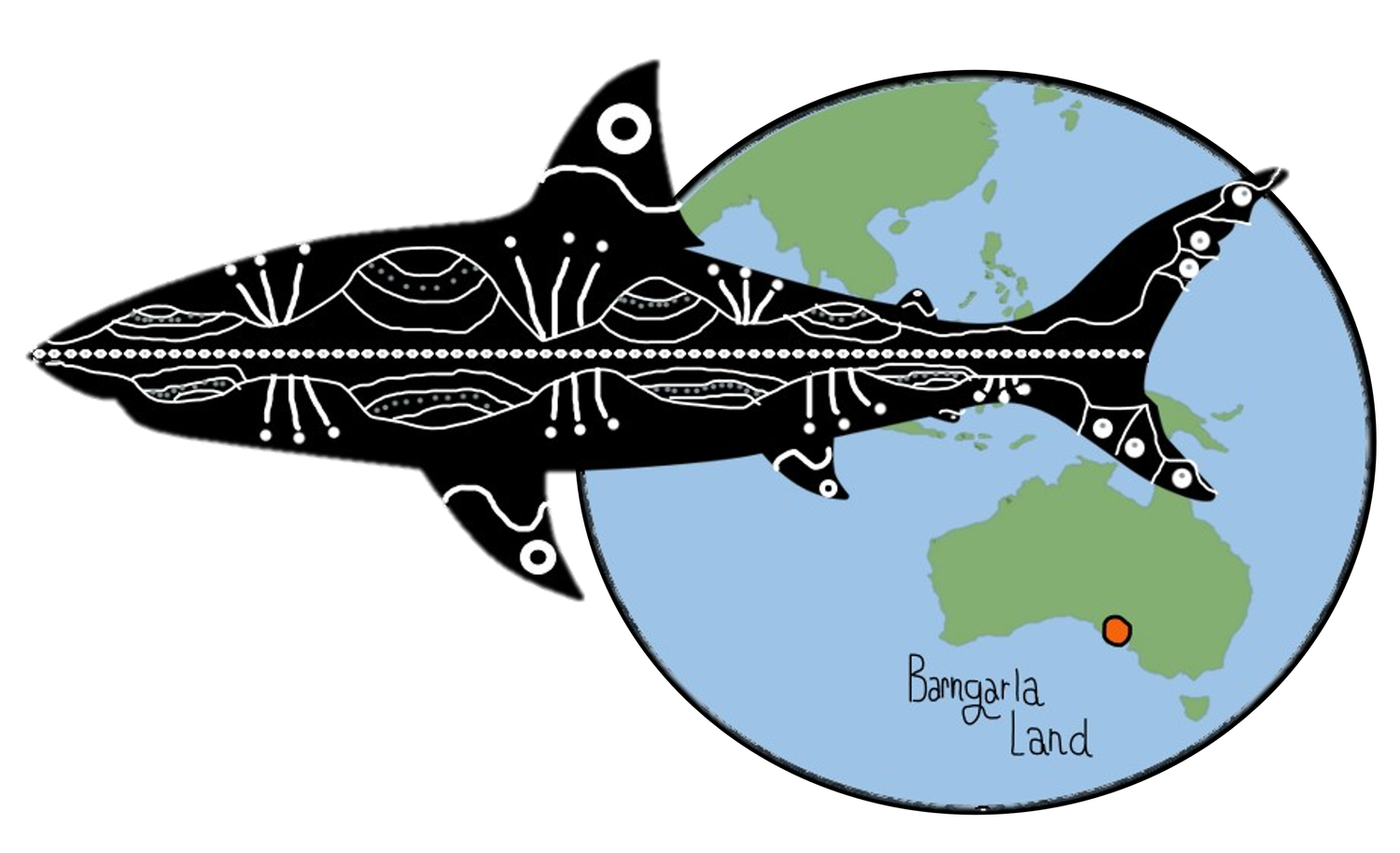Workshops
White sharks Global will be split into 2 days of presentation and 3 days of workshops with most being half-day workshops and outcome-driven. We’re pleased to announce that the following workshops will take place during on in the afternoon of Sunday 12th, and throughout Thursday 16th and Friday 17th of November.
Additional information about each workshop can be found below.
The fundamentals of using acoustic telemetry to understand shark migration and behaviour - led by Hugh Pederson
Acoustic telemetry is a well-established tool that has been used by researchers worldwide for over four decades to gain a deeper understanding of the spatio-temporal movements and associated behaviour of a wide range of aquatic animals. This half day workshop will provide guidance on how to conduct a successful acoustic telemetry study as well as offer insight into managing and verifying your data prior to analysis. Topics include how acoustic telemetry works, designing a successful study, equipment and deployment tips, detection data management and QA, using receiver diagnostic data to assess system performance, and what’s new in acoustic telemetry.
The genomic era of white shark ecology- led by Michael Doane, Adam Miller, and Belinda Martin
White sharks are central to the marine environments they inhabit, influencing trophic energy transfer through top-down predation and mediating the behaviour of co-occurring animals. Understanding their ecology is, therefore, critical. The emergence of DNA-based tools has enabled a rich characterisation for the ecology of these animals. This workshop will provide an overview of genomic methods for characterising white shark ecology. We will first provide a brief overview of genomics, followed by an in-depth discussion focusing on genomic approaches that examine population-based questions and eDNA. We will then wrap up the workshop with a methodological section introducing the laboratory and emerging technologies used in white shark genomics. We will encourage workshop participants to provide any personal insight into experiences with different technologies and how they plan to or have used them to answer their own research questions
Global analyses of white shark diet and contribution of non-pinniped food sources - led by Lauren Meyer and Jerry Moxley
We aim to address questions about white shark diet and trophic roles at a global scale. While most countries where white sharks occur have several white shark ecologists that typically work together and that communication occur between countries, there is currently nothing that formally supports and facilitates greater collaboration between scientists across countries. Many location-specific studies using biochemical tracers to investigate white shark ecology and feeding have been published, with many more ongoing studies currently taking place. The data compiled will then be used to develop and plan global comparative analyses. The specific analyses which will be undertaken will depend on the dataset collated, but the task team will aim to address the following key ecological questions: (a) consistency of ontogenetic changes in the ecological role of white shark across its distribution; (b) comparison of isotope and fatty acid niche metrics (e.g. width and overlap) across white shark aggregation areas; (c) multi-disciplinary approach to investigate spatio-temporal dynamics of white shark movements through the combination of tagging and biochemical tracer data (i.e., habitat use and coastal vs. pelagic feeding in relation to movements); and (d) improve our understanding of what is driving the carbon production of white sharks.
Synthesising global white shark satellite telemetry studies to establish research priorities - led by Wesley Ogloff and Nigel Hussey
With the rapid growth of satellite telemetry as a tool to monitor white sharks, there is a need to periodically take stock of existing work to ensure efficient and effective use of research resources. This workshop will bring together global experts on white shark satellite telemetry to determine a best-practices framework for quantitatively assessing research conducted to date and to guide priorities moving forward. Participants will collaborate to determine approaches to quantitively synthesize data extracted from global literature and finalize a core research-themes framework. We will also assess interest in producing a public database of white shark telemetry metadata to facilitate data sharing and collaboration.
Conserve, cull, compromise: the white shark conundrum -
led by Paul Butcher
This workshop explores the complex and controversial issue of managing white shark populations globally. This aims to include a diverse group of stakeholders, including scientists, conservationists, managers, and fishers, as they navigate the difficult decisions surrounding the management of these iconic predators. Through workshop 'mini presentations' and 'discussions', we will highlight the ecological importance of white sharks, as well as the economic and social implications of their presence or absence. Ultimately, the workshop aims to have working groups to help structure and write paragraphs to build a manuscript that poses the question: how can we strike a balance between conservation and human interests in a changing world?
Tracking white sharks to uncover drivers of movement and important habitats - led by Jordan Matley
Over the last 20 years, the movements and space use of white sharks (Carcharodon carcharias) have been investigated using a broad range of tracking technologies. This provides an opportunity to combine datasets collected across regions and jurisdictions to undertake a range of broad, national- and international-scale analyses. This workshop aims to develop and plan studies which can address questions utilising large-scale tracking tools. Possible studies include (but are not limited to) the identification of: 1) Biologically Important Areas, 2) drivers of movements and consistency in movement patterns (or lack thereof) across regions; 3) ecological-scale connectivity (i.e months to years) between regions and jurisdictions.
Ecological roles of white sharks across marine ecosystems - led by Jerry Moxley
White sharks are upper-trophic level predators that interact and affect coastal food webs, though full understanding is challenged by an elusive nature and depletion legacy. As marine predator communities recover from these legacies, novel ecological insights are emerging from population monitoring, animal tagging, and trophic and behavioral research of shark populations. We propose a global synthesis of the ecological role of white sharks and an evaluation of context dependencies mediating its importance. Collaborative approaches are designed to investigate topics including, but not limited to: (1) presence and/or strength of top-down prey regulation, particularly on pinniped populations; (2) risk-induced effects and anti-predator strategies across multiple behavioral scales; (3) diet shifts and intra-/inter-guild interactions amongst other marine consumers; (4) novel and/or emergent community interactions due to distributional shifts or changing habitat use; and (5) conservation conflicts in synchronized recoveries of white sharks and other protected taxa.
Is your science ready for TV? The art and trappings of documentary - led by Chris Lowe
White sharks are one of the very few animal species on the planet that garner global name recognition and largely branded by their media appeal. Because of their large size, predatory nature, and reputation for occasionally biting humans, the media has helped cultivate a public appetite for anything white shark related. As a result, Discovery Channel, National Geographic Channels, BBC, PBS have all funded numerous features of white sharks and white shark related research. Thus, production companies are always on the lookout for new ways to film and portray them, often recruiting researchers to participate in productions. This is not always a mutually beneficial experience and has often been considered exploitative. Researchers are often challenged with how to work with production companies and networks to ensure their work is portrayed accurately and they are fairly compensated for their time. In addition, injuries or fatalities involving white sharks often lead to extensive and excessive news coverage that may further demonize white sharks regardless of current research or statistics. This workshop will focus on how white shark researchers can find and work with production companies and networks to deliver agreeable content, negotiate contracts and agreements, and better shape content and messaging. We will also provide some advice and practical training on working with the news media on controlling messaging related to white shark bites and incidents.
Global management and impact of tourism on white sharks and supporting ecosystems - led by Charlie Huveneers
Wildlife tourism is growing in popularity, diversity of target species, and type of tours. This presents difficulties for management policy that must balance the complex trade-offs between conservation, animal welfare, and pragmatic concerns for tourist satisfaction and economic value. A multidisciplinary framework was developed recently to assess the impacts of wildlife tourism, focusing on industry tractability, socioeconomic values, and their effects on conservation, animal welfare, and ecosystem impacts (Meyer et al. 2021). White shark cage-diving tourism started in the early 1980s and has occurred in six countries with various levels of success and social acceptance. The workshop will use the recently developed framework to assess and compare the sustainability and acceptability of white shark tourism around the world. This comprehensive, multidisciplinary assessment will help identify factors (e.g. tourism practices, management regulations) contributing to sustainable and socially acceptable operations that supports the recovery plan of this threatened species vs. the pitfalls that can result in unsustainable activities negatively impacting white sharks or supporting ecosystems.










